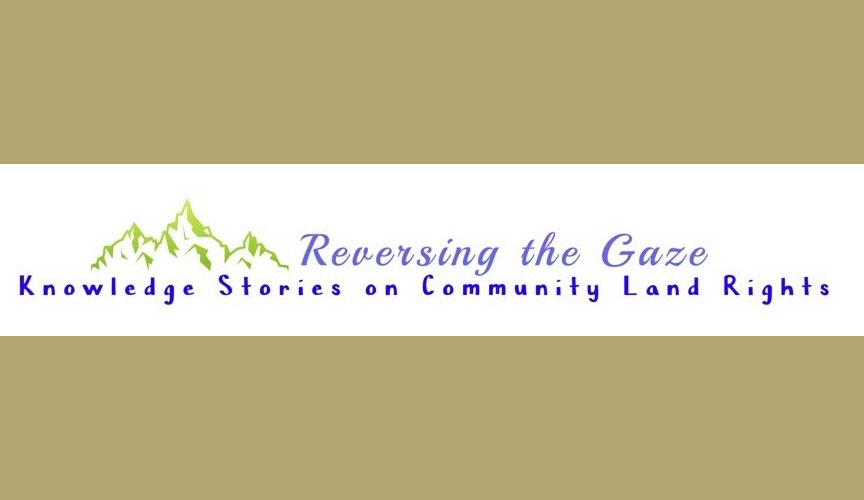Reversing the Gaze: Knowledge Stories and the Struggles for Community Land Rights in Scotland

Project team:
- PI: Dr Atenchong Talleh Nkobou, Royal Agricultural University
- Co-I: Dr Annie McKee, the James Hutton Institute, Scotland
- Co-I: Dr Andrew Ainslie, University of Reading
- Post-doctoral researcher: Dr Naomi Beingessner, James Hutton Institute, Scotland
Funding source: ESRC New Investigator Grant ES/X010872/1
Project summary
This project uniquely employs knowledge and experiences from the global South as a fresh lens through which to review the nature of community land rights in Scotland. We argue that an approach to sustainable land use starts with recognising the multiple forms of land use and making legible the lived experiences and knowledge of those who have radically altered property norms to promote local community-led sustainable development. The project aims to generate new and critical insights into the future of agriculture and sustainable land management in Scotland with implications for the wider UK. We examine contested concepts such as 'sustainable development', the land-use outcomes of the 'just transition' and questions of inclusivity within Scottish land legislation, debates and activities. To help us interrogate these concepts, we draw on a decolonial framework on sustainable land use and ownership, and follows De Sousa Santos’ call (2014) for justice against epistemicide. This explains why our methodology captures the concerns of epistemic justice and adheres to methodological guidelines from the Popular University of Social Movements (UPMS, 2015). Our approach involves using participatory action research with representatives of case study community bodies and a cross-section of individuals engaged with the struggles for community land rights in Scotland. In-depth interviews, photo elicitation techniques, exhibitions, and dialogues will be used to further explore alternative ideas and knowledge within the struggles for community land rights.
Our work is innovative in that the project considers community members as co-investigators and custodians of knowledge as they visualise and create self-reflective artefacts and records of their everyday realities and attachments to land. This process seeks to be empowering because it recognises the existence of many forms of knowledge and lifeways that need to be made legible to a wider audience. Hence, the project creates contexts and opportunities for mutual learning on questions about equitable access to and control over natural resources. The point is to draw on Scottish experiences to systematically highlight the knowledge, articulations and alliances that can underpin global struggles for community land rights as variously understood and imagined.
Finally, we aim to foster a community of knowledge and practice that will bring together activists, academics, policymakers, key informants, and social groups from different regions. This community will be encouraged to elucidate knowledge embedded in the struggles for community land rights in Scotland. We pursue this exercise of community practice by facilitating and observing dialogues between nine purposively selected community land activists - three from Scotland, Tanzania, and South Africa, respectively. Conversations between community activists will be organised through virtual meetings, workshops and photo exhibitions. Added to these, we will document an extended critical reflection on our positionalities as researchers of land rights and land reform in Scotland, Tanzania, and South Africa, aiming to explore and contextualise Scotland's politics of land ownership.
We anticipate that synergies between Scotland's community land struggles and those in the global South can be established through a shared understanding of the centrality of equitable and sustainable land-use politics and practices. Indeed, in many cases, these contestations over land rights are informed by increased awareness of a rights-based push for equitable land reforms, sustainability, climate resilience and environmental protection.
The research will contribute to academic and popular debates, including academic and popular publications and two open lectures at the RAU and the University of Reading, on exploring the different forms of land ownership and community practice. Through these processes of knowledge co-production, our project aims to achieve a number of impacts.
Impact:
- To progress a critical understanding of the role of community land rights as a route to sustainable development.
- To contribute to theoretical perspectives on progressive property rights.
- To support a community of practice working towards strengthening South-North research cooperation in relation to equitable land use rights.
- To contribute to policy development on sustainable and inclusive land policies in Scotland, the UK, and broader international contexts.
- To raise public awareness on the need for land reform and specifically on community land ownership as an alternative to private property ownership.
Project start date: 1 November 2023
Expected end date: 1 November 2026
Contact: a.tallehnkobou@rau.ac.uk
